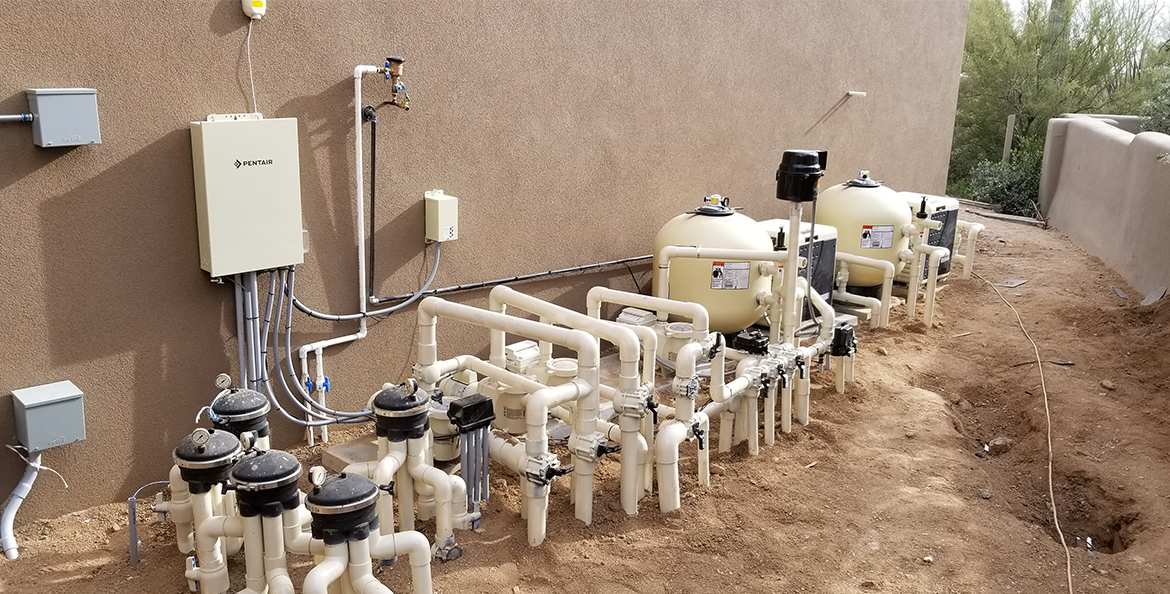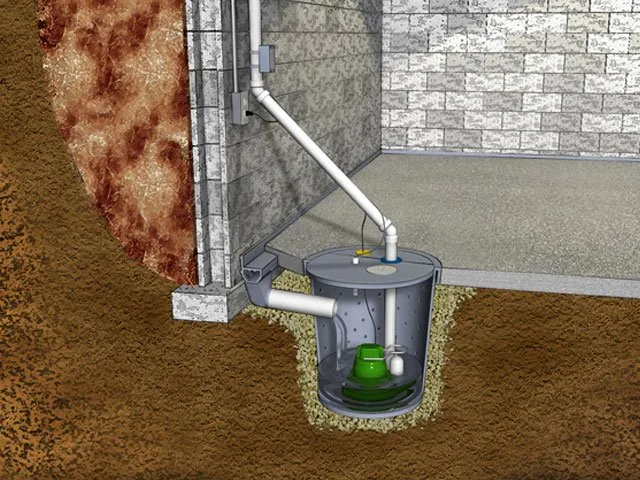Cutting-Edge Water Filtration Systems: Supporting Healthier Living Environments
Cutting-Edge Water Filtration Systems: Supporting Healthier Living Environments
Blog Article
Recognizing the Key Parts of Effective Water Filtering Equipments

Significance of Water Filtration Equipment
Water purification systems play a vital function in guaranteeing access to tidy and risk-free drinking water by properly eliminating contaminants and impurities. These systems are important in addressing the expanding issues over water top quality and the prospective health threats related to consuming infected water. By utilizing numerous filtering mechanisms such as reverse osmosis, triggered carbon, and UV sterilization, water purification systems can efficiently eliminate unsafe compounds like bacteria, viruses, hefty metals, and chemicals from the water supply.
Additionally, water filtration systems assist to boost the taste and smell of water by removing chlorine, sediments, and various other pollutants that can impact its top quality. Water Softeners. This improvement in water quality not just makes it more palatable however additionally motivates people to drink a sufficient quantity of water daily, advertising better hydration and general wellness
Sorts Of Filtering Components

Physical filters are designed to literally strain out contaminations from the water. These filters can be constructed from materials like ceramic, carbon, and even sand, and they function by trapping particles larger than the filter's pores as water goes through.
Chemical filters utilize different chemical procedures to remove contaminants from the water. Instances include activated carbon filters, which adsorb contaminations, and reverse osmosis membranes, which use stress to different contaminants from the water.
Organic filters utilize living microorganisms like algae or microorganisms to break down natural matter and pollutants in the water. These filters are usually utilized in wastewater therapy plants or natural water filtration systems.
Comprehending the various kinds of filtration parts is vital for choosing the most suitable water purification system for certain purification needs.
Function of Sediment Filters
Debris filters play a critical duty in water purification systems by properly recording solid bits suspended in the water. These filters are generally the first line of defense in a filtration system, removing larger fragments such Water Treatment as sand, silt, dust, and rust before the water relocates via finer filtering stages. By trapping these debris, the filters avoid them from getting to downstream elements, thus extending the life-span and effectiveness of the entire system.
The function of debris filters is crucial in maintaining water top quality and shielding sensitive equipment from damages triggered by particles. Furthermore, by removing noticeable bits, debris filters improve the clarity and preference of the water. Consistently replacing or cleaning debris filters is important to guarantee optimum performance. Neglecting this upkeep can lead to obstructing, decreased water circulation, and jeopardized filtration effectiveness. Overall, debris filters are important parts that add dramatically to the efficiency of water purification systems.
Function of Triggered Carbon Filters
Playing an essential function in water purification systems, activated carbon filters are critical in removing impurities and pollutants from the water. These filters are designed to adsorb and trap a variety of pollutants, including chlorine, unpredictable organic compounds (VOCs), pesticides, and herbicides. The triggered carbon product has a huge surface location, enabling the effective capturing of impurities via a procedure called adsorption. As water travels through the filter, the turned on carbon holds and attracts onto the pollutants, making sure that the water that appears on the various other side is cleaner and safer for consumption.
Activated carbon filters are very reliable at boosting the preference and odor of water by decreasing chemicals that can affect its top quality. They are also capable of getting rid of particular hefty metals like lead and mercury. Additionally, these filters can aid protect against the build-up of germs and algae in water, further enhancing its total high quality. Because of their flexibility and reliability, turned on carbon filters are a crucial element in guaranteeing that water is purified to the highest possible requirements before getting a knockout post to consumers.
Understanding Reverse Osmosis Equipments
Reverse osmosis systems are advanced water filtering systems that use a sophisticated process to get rid of pollutants and contaminations from drinking water. These systems function by applying stress to the water, requiring it via a semi-permeable membrane layer.
One key advantage of reverse osmosis systems is their capability to pop over to this web-site get rid of a large range of impurities, including heavy metals, liquified solids, germs, and viruses. This makes them highly effective in enhancing the total high quality and security of drinking water. Additionally, reverse osmosis systems are reasonably low-maintenance and can be set up under the sink or in a main filtration system, offering convenient accessibility to tidy water throughout the family. In general, comprehending just how reverse osmosis systems work can assist individuals make educated choices concerning their water filtration needs.
Verdict
In conclusion, effective water purification systems are important for guaranteeing tidy and secure drinking water. By recognizing the function and duty of each element, people can make informed choices when selecting a water purification system.
Water filtration systems play a crucial function in ensuring accessibility to clean and risk-free alcohol consumption water by effectively eliminating contaminants and pollutants. By using numerous filtration systems such as reverse osmosis, turned on carbon, and UV sterilization, water filtering systems can efficiently get rid of unsafe substances like germs, infections, hefty metals, and chemicals from the water supply.
Sediment filters play a critical role in water filtration systems by successfully recording solid particles suspended in the water (Water Filtration Systems).Playing a vital role in water filtering systems, triggered carbon filters are crucial in getting rid of impurities and impurities from the water supply.Reverse osmosis systems are innovative water filtration systems that use an innovative procedure to remove contaminants and contaminations from alcohol consumption water
Report this page